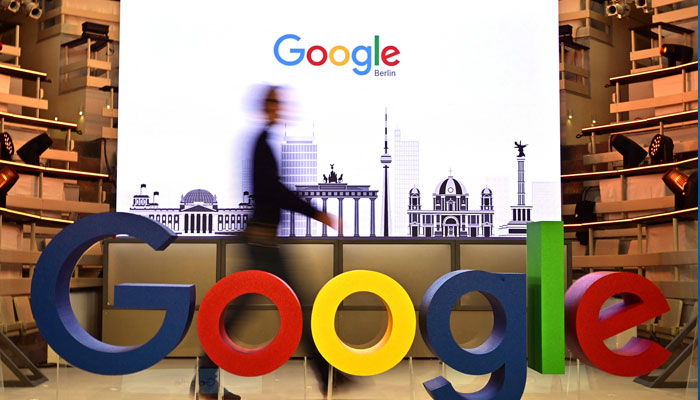Google to overhaul ad tracking system on Android devices
Tech giants are under growing pressure to better balance privacy and ad-targeting, as regulators threaten tougher rules
WASHINGTON: Google announced plans to limit ad tracking on its Android operating system running on billions of devices, a sensitive privacy issue that rival Apple has already moved to address on its iPhones.
Tech giants are under growing pressure to better balance privacy and ad-targeting, as users complain and regulators threaten tougher rules — but the companies themselves try to maintain access to the precious data helping them earn billions in ad revenue.
Apple has about 50% of the US smartphone market while Google's Android software is used on roughly 85% of smartphones globally.
Any changes to Android could therefore impact the data from billions of users.
At present, the internet search giant assigns an identity to Android-powered devices, which enables advertisers to have a profile of people's online habits and thus send them ads they might be interested in.
"Our goal...is to develop effective and privacy enhancing advertising solutions, where users know their information is protected, and developers and businesses have the tools to succeed on mobile," Google said in a statement.
For its part, Apple announced last year that users of its one billion iPhones in circulation can decide whether to allow their online activity to be tracked for the purpose of targeting ads.
It was a change which Apple said shows its focus is on privacy, but that critics noted does not prevent the company itself from tracking its users.
Apple's tweak has sent ripples through the tech world, with Facebook parent Meta saying it expects that policy to cost the social media giant $10 billion in lost revenue this year.
A heavy impact is expected because less data will impact the precision of the ads Meta and other companies can sell, and thus their price.
Online advertising billions
Google gave an indication of the timing of its announced changes, saying "we plan to support existing ads platform features for at least two years, and we intend to provide substantial notice ahead of any future changes."
The company said it is working on ways to better protect users' privacy, which would "limit sharing of user data with third parties and operate without cross-app identifiers, including advertising ID."
It contrasted its plans with Apple's moves, saying, "we realize that other platforms have taken a different approach to ads privacy, bluntly restricting existing technologies used by developers and advertisers."
Facebook reacted to the news with some relief.
"Encouraging to see this long-term, collaborative approach to privacy-protective personalised advertising from Google," tweeted Meta's vice president of ad product marketing Graham Mudd.
While Google argued that the changes would protect users' anonymity, it could also further strengthen the dominance the tech giant already holds over the digital advertising industry.
Google's parent Alphabet pulled in over $60 billion in the fourth quarter of 2021 just in ad revenue, which makes up over 80% of its income.
"Google has a number of ways around (tracking). They are monitoring so much of what you do, and control so much of what goes on in the web search environment," said analyst Rob Enderle.
"Tracking is much more important to Facebook than it is to Google," he added, referring to the search giant's multiple online services that offer more varied sources of user data.
-
Archaeologists recreate 3,500-year-old Egyptian perfumes for modern museums
-
Smartphones in orbit? NASA’s Crew-12 and Artemis II missions to use latest mobile tech
-
Rare deep-sea discovery: ‘School bus-size’ phantom jellyfish spotted in Argentina
-
NASA eyes March moon mission launch following test run setbacks
-
February offers 8 must-see sky events including rare eclipse and planet parade
-
New study reveals biodegradable chip aims to reduce e-waste and air pollution
-
Scientists unveil new robotic mission for the moon
-
NASA reschedules Artemis II rehearsal due to Florida arctic outbreak












